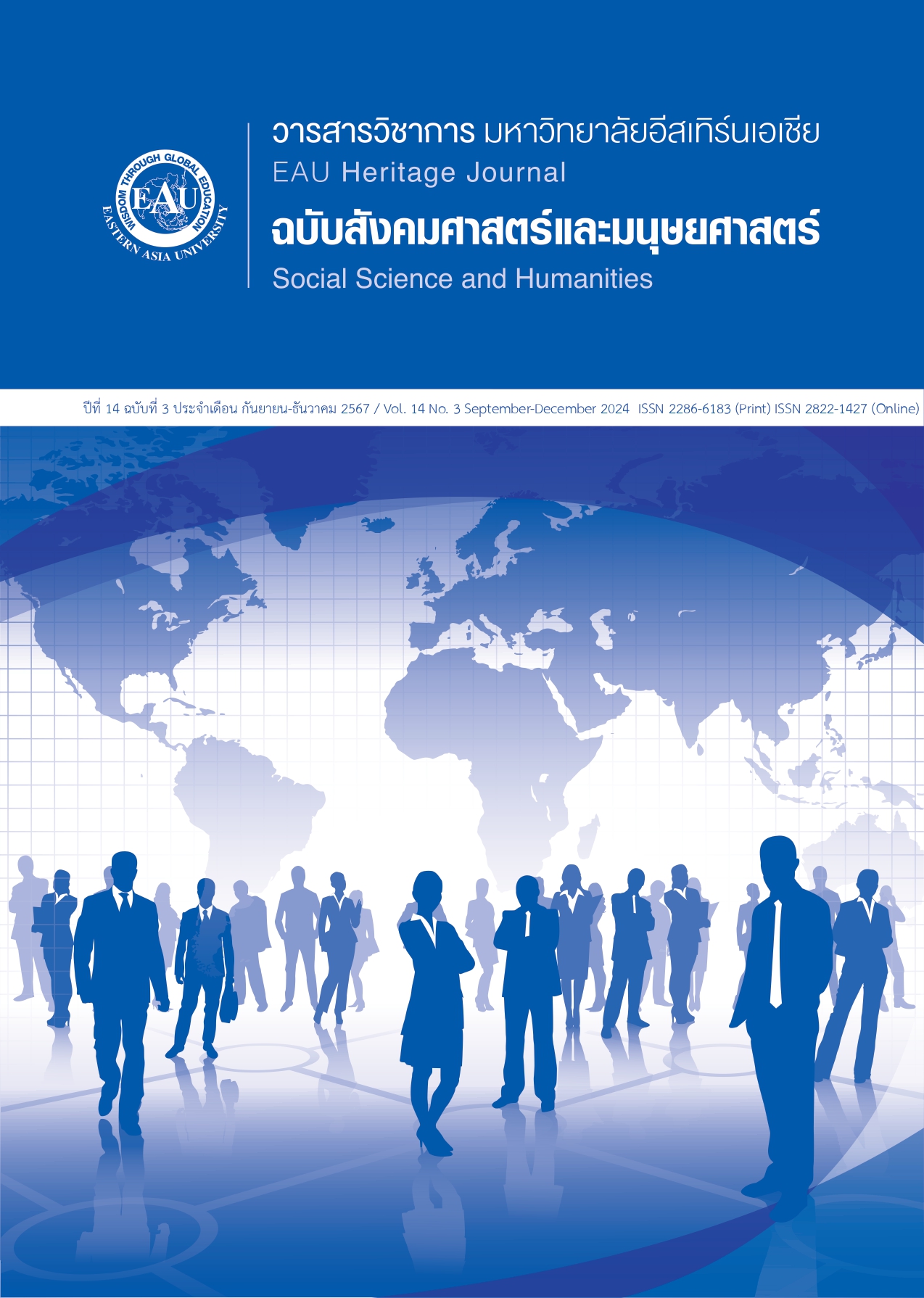More Blended Learning (MBL) that Focused on Learners as the Center in the Next Normal Era: Applying Concepts from Theory to Practice
Keywords:
Blended learning, More blended learning, Learner’s personal factorsAbstract
Blended Learning has been used more widely after the COVID-19 crisis. it is a combination of learning in the classroom and learning outside the classroom. in one subject, teachers will use a variety of teaching methods. The main goal is to enable students to achieve their learning goals. And in this article, it was also found that there are four important personal factors of learners that directly affect their success in learning with this method. the author abbreviates it as M O R E (which has the same sound as the English word More-More, which is translated into Thai as More/than etc.) By the M O R E factors mentioned in this article, M means Moral, O means Open Mind, R means Responsible and E Means Enjoy. Moral (M): moral factor, Open Mind (O): open-minded factor, Responsible (R): responsibility factor and Enjoy (E): enjoyment factor. These are the personal factors of the learner (Learner’s personal factors) that are important to the success of blended learning. and giving importance to these characteristics of learners also shows that it is truly consistent with the learner-centered concept that not only focuses on the individual but also focuses on the internal characteristics of the learner, too. and when the word MORE is integrated with blended learning to serve as a guideline for organizing learning in the New Normal era, where the education system has learned many important lessons from the COVID-19 crisis. thus, the concept of MORE Blended Learning: MBL was born.
References
Anukulvej, A. (2012). Blended learning. Retrieved from http://www.chontech.ac.th. (in Thai)
Bernath, R. (2012). Effectives approaches to blended learning for independent Schools. N.p.
Chantanarungpak, K. (2005). Development of web-based instruction model blended with cooperative
learning in mathematics of upper primary school students. Bangkok: Chulalongkorn University.
(in Thai)
Department of Curriculum and Instruction Development. (2003). Learning management for Thai language
learning groups according to the basic education curriculum B.E. 2011. Bangkok: Express Transportation Organization of Thailand. (in Thai)
Dziuban, C. D., Hartman, J., & Moskal, P. (2004). Blended learning. Edu cause research bulletin.
Graham, C. R. (2005). Blended learning system: Definition, current trends, and future directions In C. J.
Bonk, C. J., & Graham, C. R. (Eds.), Handbook of blended learning: Global perspective. San Francisco, CA: Pfeiffer.
Horn, B. M., & Staker, H. (2011). The rise of K-12 blended learning. Unpublished Paper: Innosight Institute.
Jaithiang, A. (2010). Teaching principles. (5th ed.). Bangkok: O.S. Printing House. (in Thai)
Jiraworapong, P. (2009). Blended learning. Journal of education of Naresuan University,
-16. (in Thai)
Khamani, T. (2010). Teaching science: Knowledge for organizing an effective learning process. (2nd ed.).
Bangkok: Chulalongkorn University Printing House. (in Thai)
Komenphankul, T. (2011). The development of blended learning activites on guitar 1 course upon music
practical skill for undergraduate students. Bangkok: Silpakorn University. (in Thai)
Maneenak, J. (2002). From e-learning to blended teaching and learning. Bangkok: Master Journal. (in Thai)
Office of the Education Council. (2003). Model for organizing the learning process according to Thai
language learning content groups. Bangkok: Hasan Printing. (in Thai)
Office of the Prime Minister, Office of the National Education Commission. (2001). Guidelines for
educational reform higher education according to the national education act 1999. Bangkok: Limited partnership V.T.C. Communication. (in Thai)
________________. (2002). National education act 1999 amendment (No.2) B.E. 2002. Bangkok: Phrikwan
Graphics Co., Ltd. (in Thai)
Office of the Royal Society. (2014). Royal institute dictionary 2011. (2nd ed.). Bangkok: Nanmeebooks.
(in Thai)
Pornkul, C. (2018). Teacher knowledge creation process, the case for integrated teaching. Bangkok:
Chulalongkorn University Printing House. (in Thai)
Smith, J. M. (2001). Blended learning: An old friend gets a new name.
Thungkanai, K. (2021). Blended learning in the new normal blended way learning in a new normal.
Journal of educational studies, (1st). 29-43. (in Thai)
Tumthong, B. (2016). Theory and development of learning management models. (3rd ed.). Bangkok: Triple Education Limited. (in Thai)





